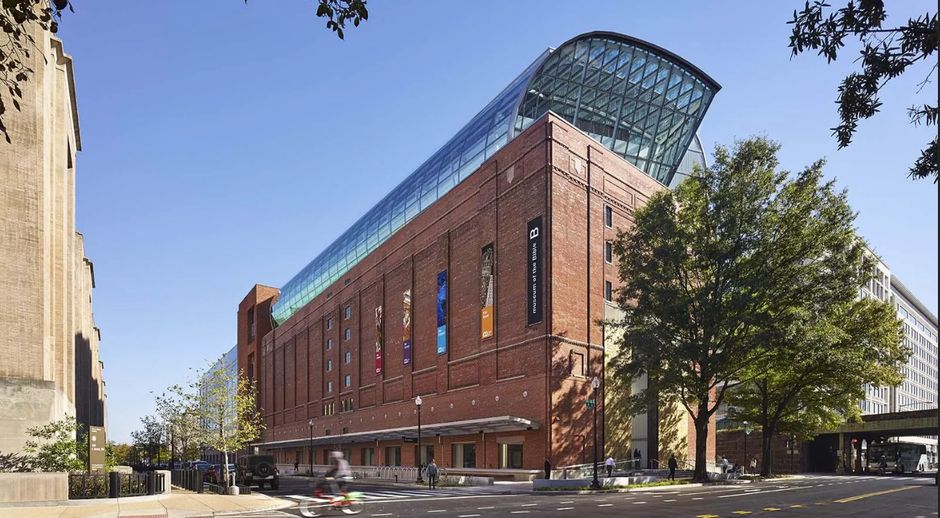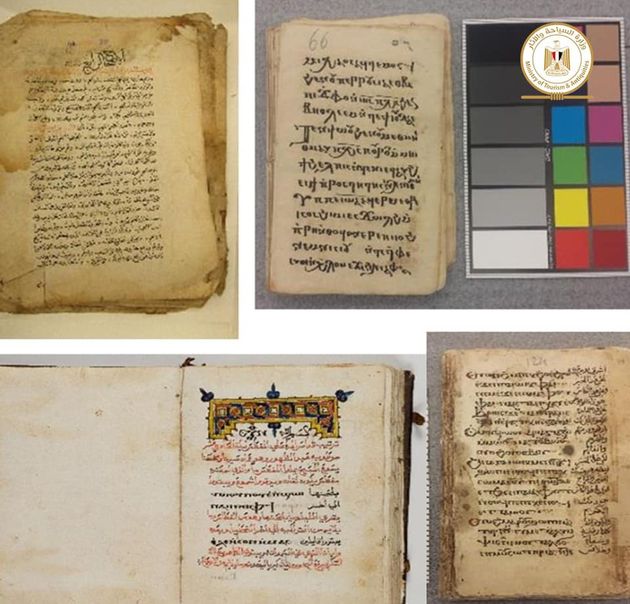US Museum of the Bible returns thousands of ancient artefacts to Egypt and Iraq
The museum takes back around 5,000 manuscripts to Egypt and over 8,000 ancient clay objects to Iraq. Since its opening in 2017, it has been accused of several controversial acquisitions.
WASHINGTON D.C. · 04 FEBRUARY 2021 · 17:05 CET

The Museum of the Bible in Washington DC has returned around 5,000 ancient artefacts to Egypt, after evidence showed that they were brought to the United States illegally during the Arab Spring.
According to the Egyptian Ministry of Tourism and Antiquities, the items include “nearly 5,000 manuscripts and pieces of papyrus, with texts in Coptic, hieratic and demotic script, and Greek; manuscripts of Christian religious prayers; in addition to a number of funerary masks, parts of coffins, heads of stone statues, and a group of portraits of the deceased”.
“Dr. Hisham Al-Laithi, head of the central administration of the Antiquities Registration Center, confirmed that the repatriated pieces are not from museums or archaeological stores of the Supreme Council of Antiquities, but rather as a result of illegal excavation”, they added.
Along with its Egypt shipment, the museum has also been forced to return 8,106 disputed clay objects to the Iraq Museum in Baghdad.
This is not the first time that the museum had to return this kind of items to Iraq. Last May, the U.S. government seized a clay table known as the “Gilgamesh Dream Tablet”, which dates back to 1600 B.C and was on loan to the museum. The government says the item, bought at Christie’s in 2014 for $1.6 million, was taken illegally from Iraq.
A long process of repatriation
Steve Green, owner and chair of the museum and president of retail company Hobby Lobby, explained in a statement that on May 2020 he executed a legal document “transferring title of all the artefacts to the Republic of Iraq and the Arab Republic of Egypt”.
One month later, “all of those items were delivered to separate independent, third-party fine art storage facilities for the care, custody, control, and benefit of Iraq and Egypt respectively”.
Over the next months, they continued talking with Egyptian and Iraqi officials, but, although the discussions “were cordial and promising”, they “were not able to finalize the desired agreements nor resolve the logistics. As a result, we enlisted the help of U.S. government to assist with the delivery of the items”.
On January 7, they “transferred control of the fine art storage facility that housed the 5,000 Egyptian items to the U.S. government as part of a voluntary administrative process”.

The Egyptian Ministry of Tourism and Antiquities confirmed that the artefacts arrived safely at the Cairo International Airport and will be placed in the Coptic Museum.
Meanwhile, on January 27, the museum “initiated the shipment of the 8,106 clay objects to The Iraq Museum in Bagdad. We appreciate the assistance and professionalism of the U.S. government officials in helping with the logistics of these repatriations”, Green said.
Controversial acquisitions
Since its opening in November 2017, the Museum of the Bible has had to deal with several accusations of controversial acquisitions of ancient artefacts.
Last April, Oxford University professor Dirk Obbink was arrested for allegedly stealing ancient Bible fragments from the Oxyrhynchus collection in the Sackler Library and sold them to Hobby Lobby to be displayed in the museum.
In 2018, the museum acknowledged that at least five of its sixteen Dead Sea Scrolls showed “characteristics inconsistent with ancient origin”. In 2020 experts confirmed that none of the textual fragments are authentic.
Furthermore, in 2017, Hobby Lobby paid a $3m fine and returned biblical cuneiform tablets and clay bullae, after the US Department of Justice accused it of smuggling them from Iraq.
Despite all these incident, Green pointed out that they “will continue to look for ways to partner with the Iraq Museum, the Coptic Museum, and other institutions, to provide assistance with preserving and celebrating the rich cultural histories of those countries and many others”.
Published in: Evangelical Focus - culture - US Museum of the Bible returns thousands of ancient artefacts to Egypt and Iraq
